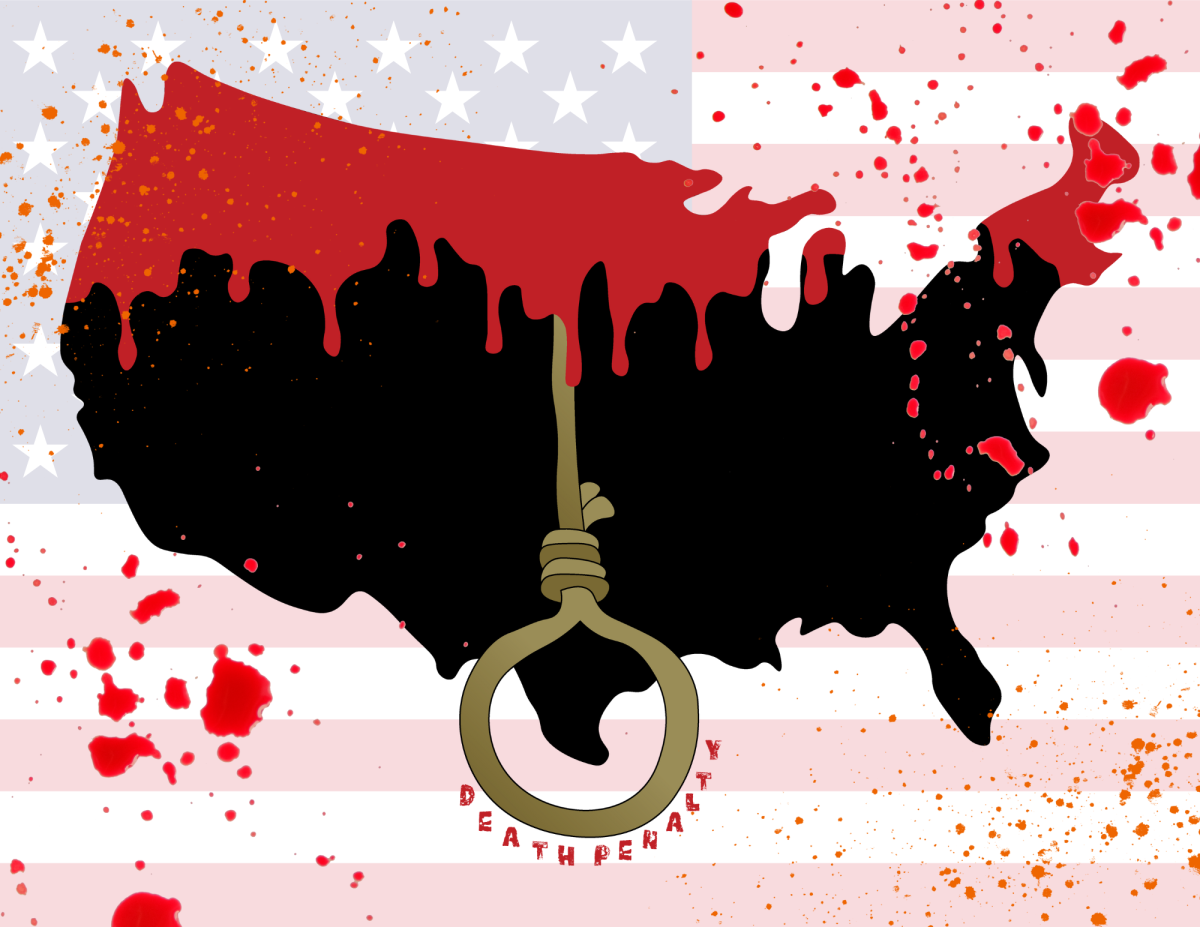“I contemplate with sovereign reference that act of the whole American people which declared that their legislature should ‘make no law respecting an establishment of religion, or prohibiting the free exercise thereof, thus building a wall of separation between Church [and] state,” Thomas Jefferson said in an 1802 letter.
This principle– the separation of government and religion–has guided American democracy since it was founded through the Establishment Clause in the First Amendment. However, state governments are increasingly violating students’ right to be free from religion in schools through laws and directives.
The Establishment Clause declares that “Congress shall make no law respecting an establishment of religion.” The “Lemon Test,” based on the 1971 U.S. Supreme Court case Lemon v. Kurtzman, is commonly used by the court system as a way of determining whether the Establishment Clause is being violated, which explains that government involvement in religious activities is only allowed if it has a secular purpose, does not advance or inhibit religion and does not excessively entangle the government in religion.
While debates about the “line” in the separation of church and state have existed all throughout American history, in recent years, conservative government officials have been increasingly testing the divide.
In Louisiana, the Republican-led government enacted a law, House Bill 71, in 2024, that requires the Ten Commandments to be displayed on a poster in “large, readable font” in all public classrooms, which includes kindergarten up to public universities.
This is a clear violation of the Constitution, proven by the fact that similar bills were introduced in Texas, Oklahoma and Utah, but ultimately failed because of the threat of legal challenges. Displaying the Ten Commandments is a government endorsement of a specific religion, which is unconstitutional.
House Bill 71 was nearly immediately challenged in court. On Monday, Oct. 21, 2024, a federal judge heard arguments on whether he should temporarily block the law.
During oral arguments, legal historian Steven Green testified that “there is next to no evidence” that the Ten Commandments were considered by the Founders while drafting the government system, and they were “indirectly influential at best.” This means that the argument for the Ten Commandments in schools–that it serves the educational purpose of helping students understand how the U.S. was created–is invalid.
In fact, the Supreme Court already determined displaying the Ten Commandments in public schools to be unconstitutional in the 1980 case Stone v. Graham. The case resulted from a Kentucky statute requiring the Ten Commandments be posted in all public school classrooms. In a 5-4 decision, the Supreme Court struck down the law, saying it violated the first qualification of the Lemon Test and did not have a secular purpose.
Oklahoma made headlines over the summer after State Superintendent of the Oklahoma Department of Education Ryan Walters directed all public school districts to “immediate[ly] and strict[ly]” teach the Bible and have a copy of it in every classroom for students in grades five through 12.
Walters’ announcement came days after the Oklahoma Supreme Court barred the opening of a religious charter school, much to Walters’ chagrin. It was clearly the right decision, as the school, which would have been publicly funded, would have required teachers to “convey the Church’s message and to assist in carrying out the Church’s mission.”
This directive is a clear violation of the separation of church and state. Publicly funded schools are “endorsing” a certain religion. Perhaps saying it best, Head of Americans United for Separation of Church and State Rachel Laser responded to the new requirement by saying, “Public schools are not Sunday schools.”
“This is textbook Christian Nationalism: Walter is abusing the power of his public office to impose his religious beliefs on everyone else’s children. Not on our watch,” Laser said in a statement.
On Thursday, Oct. 17, 2024, a lawsuit over the directive was filed with the Oklahoma Supreme Court. It argues the mandate violates Oklahoma’s constitution by “represent[ing] a governmental preference for one religion over another” and that Walters is illegally appropriating the $3 million funds necessary for purchasing roughly 55,000 Bibles. The lawsuit alleges the money was illegally reallocated from the salaries of the education department staff.
One cannot contend this effort is not politically motivated. On Thursday, Oct. 10, 2024, Oklahoma had to amend its request for the Bibles to expand which Bibles are considered acceptable. This came after backlash that the original request heavily favored the “God Bless the USA” Bible that President Donald Trump endorsed. Walters, of course, endorsed Trump for president.
“We are going to be so proud here in Oklahoma to be the first state in the country to bring the Bible back to every single classroom and every state should be doing this…,” Walters said in an interview according to the Oklahoman. “President Trump praised our efforts. President Trump has been the leader on this issue.”
In fact, one can allege Trump is at the core of the rise in measures to introduce religion into public schools. It is quite possibly due to the fact that the federal court system is in line with conservative beliefs–conservatives have a 6-3 supermajority on the Supreme Court due to Trump’s three appointees, and Trump appointed 53 federal appeals judges during his term–and thus conservatives will be more likely to win court cases.
The separation of church and state is at the crux of American democracy and religious freedom. Schools are meant to be educational, not mechanisms for people to promote certain religious beliefs to children. It is absolutely necessary for all recent measures that attempt to introduce religion into public schools to be overturned.
This story was originally published in the March 2025 Eagle Eye print edition.
































